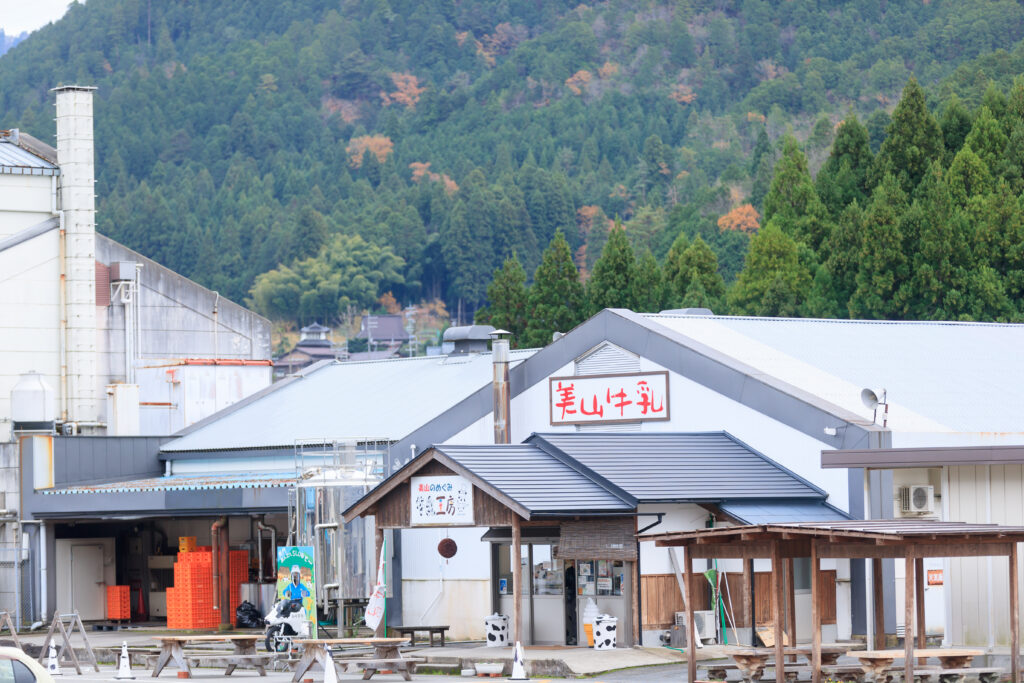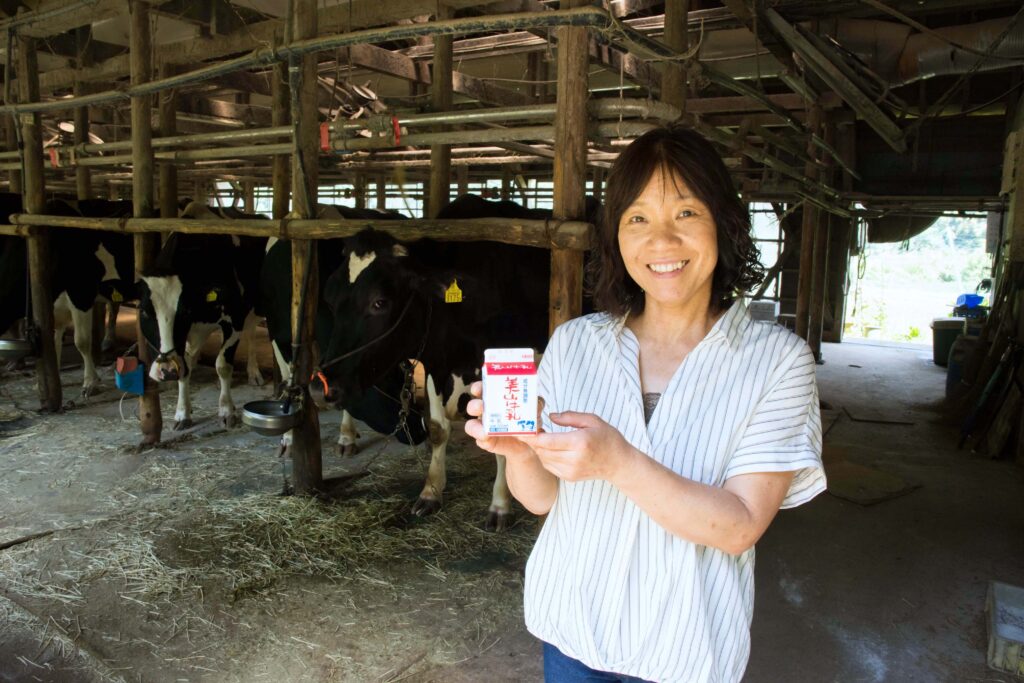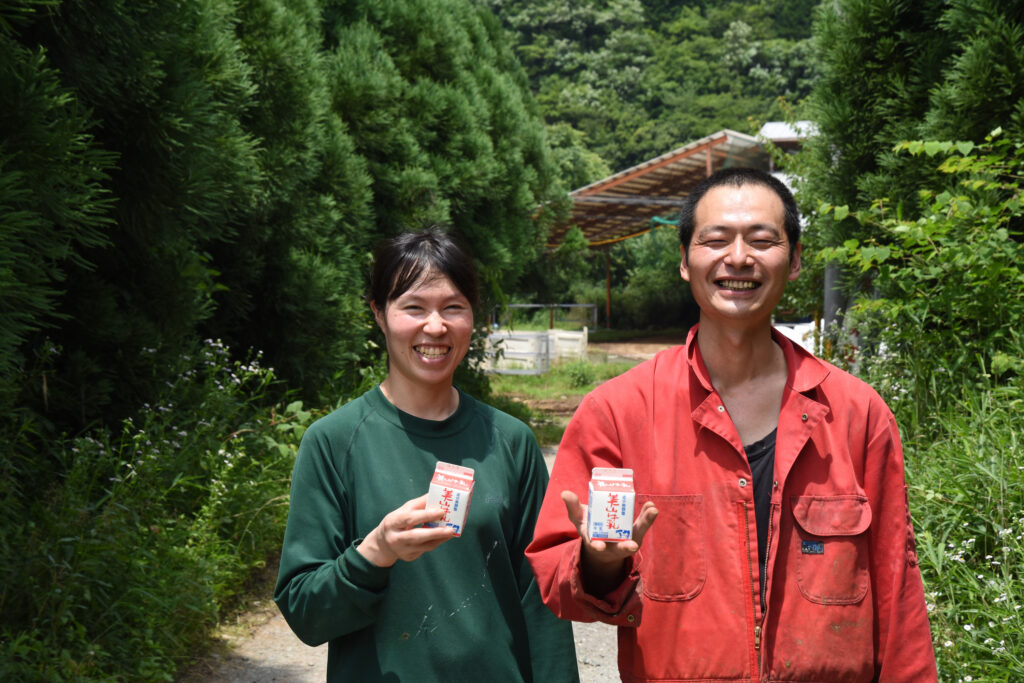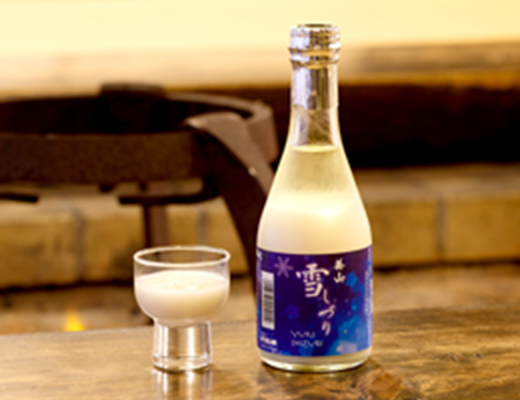Beverages from nature
Natural beverages are also specialties of Miyama. Here are stories about Miyama milk and Doburoku, unfiltered sake.
Miyama Milk
The fresh mountain air and unpolluted waters of Miyama are perfect for dairy farming. Miyama milk is prized for its quality although production is not large. It is used in popular local sweets such as gelato and custard pudding.

Although cattle have been kept in the area for centuries to till the fields and provide fertilizer, raising milk cows has a relatively short local history. In the 1950s, the national government proposed a plan to build a dam on the Yura River. The people of Miyama objected to the construction, as it would cause the loss of farmland and require many households to relocate. To overcome this opposition, the government and residents agreed on support measures for local farmers, including promoting new initiatives such as dairy and tea farming.


Milk production in Miyama has dwindled with only two dairy farms still in operation. The farmers aim to provide a stress-free environment for their approximately 100 cows, which produce some 3 tons of milk per day.
The rich and creamy taste of Miyama milk is due in part to the way it is pasteurized. The raw milk is heated to a relatively low temperature of 85°C for 15 minutes, which preserves the milk’s original flavor. However, this also results in a short shelf life, and most Miyama milk is consumed locally. It appears in school lunches, is sold in cartons and glass bottles, and is used to make products such as soft serve ice cream, gelato, cheese, and custard pudding all available in the town.
Doburoku
Doburoku is unfiltered sake, a cloudy alcoholic beverage made by blending steamed rice, water, and koji mold and simply leaving the mixture to ferment in a cool place. It was commonly brewed at home until the late nineteenth century when the Japanese government outlawed making alcohol without a license. However, doburoku made a comeback in Miyama in the early 2000s, after the town was designated a special “doburoku zone” as part of a government push to relax brewing regulations in the hope of stimulating rural economies.
Restaurants and hotels in Miyama are now allowed to set up microbreweries for doburoku, provided they grow the rice used themselves. Three facilities currently brew doburoku, selling it directly and at Miyama Fureai Hiroba, the local highway rest stop. All three varieties have an ABV of around 9 percent and are sweet and somewhat pungent. They differ slightly in aroma, including hints of tropical fruits like banana or papaya.
Since doburoku is unfiltered, it has a thick consistency and some of the texture of the rice remains in the liquid. As it also contains live lactic bacteria, if you buy doburoku to bring home you should take care not to shake the bottle and to keep it refrigerated before opening. The beverage stays fresh for up to a month but is best consumed within two weeks.


